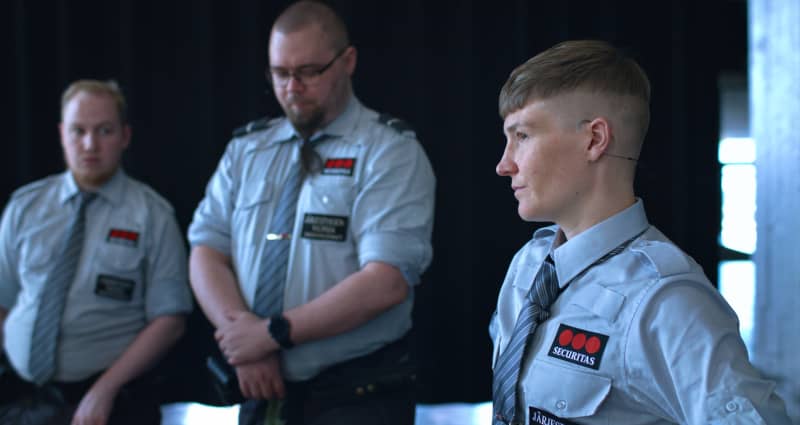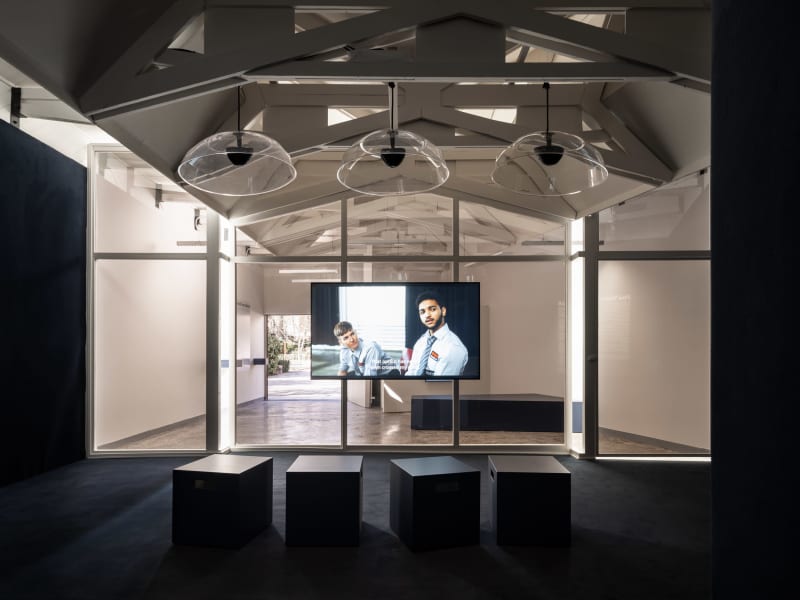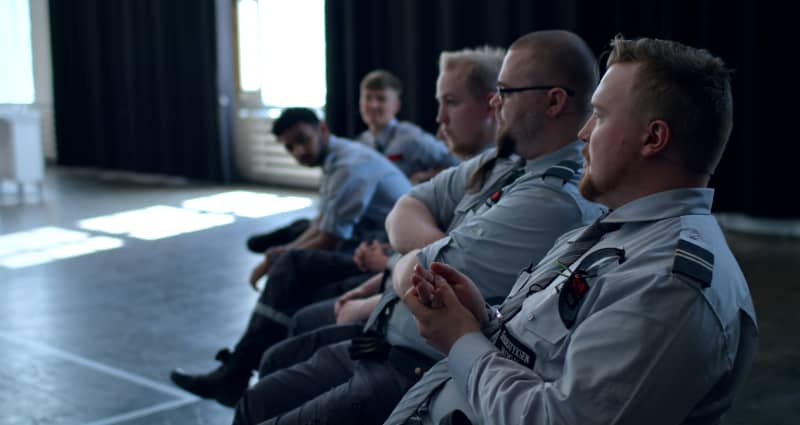
The police said at the turn of the year that they suspected several law enforcement officers of assaults. At the same time, Takala’s video work, Close Watch, shown in the spring at Emma in Espoo, became even more topical.
The police are currently investigating a total of 24 cases near train stations in the capital region.
The news did not surprise Takala.
– The acts are shocking, but I am really happy that the matter has been investigated despite the fact that the victims have not filed criminal reports. Often the targets of the use of force are people who are in a weak position for various reasons and who do not feel that the authorities can protect them.

Takala’s work follows the workshop he organized for his security colleagues at the end of his project – after revealing himself as an artist. Before that, he had trained as a security guard and worked for half a year in his \”new profession\” in a shopping center. The employer, the security company Securitas, was involved in the plot and received valuable observations and development ideas from Takala.
The video work *Close Watch*, which explores the work culture and unwritten rules of the security industry, will be shown at the Espoo Museum of Modern Art from the first day of February. It premiered at the Venice Biennale in spring 2022.
\”Often repeated use of force is ok\”
During his career as a security guard, Takala observed several possible reasons why situations could escalate into excessive use of force and violence. First of all, the training period is short, starting at four weeks, if you want to be a security guard in public spaces such as train stations or shopping centers. The industry is plagued by a constant labor shortage.
– In four weeks, you learn the law that regulates that work, which is of course extremely important. But the use of force, that’s it for a few days. I didn’t feel like I was ready for work after the course, says Takala.
Many people trained in the field share the feeling with Takala. It is customary for senior colleagues to train newcomers on the job. So chance plays a role in many things: with whom you get the first contact for the actual work, and what kind of situations you encounter during the first shifts.
– There are many ways to do the job of a security guard, and there is an idealization of the use of force. Some like to use force, others get through almost all situations by talking.

According to Takala, the rule of thumb is that courage is a trump card. The industry needs people who dare to go into situations. Therefore, colleagues who behave aggressively also receive tacit approval for their actions.
– The majority was of the opinion that frequent use of force is okay, as long as the action is legal. I think there are a lot of situations on that border that shouldn’t be part of the work culture.
Takala once ran into a situation where the issue was a colleague’s clear overreach, perhaps even illegality.
– It was condemned in the work community right away, but I don’t know if the reaction from the employer’s side was sufficient.
Uniforms vs. Citizens
The obvious downside of the guards’ use of force is that they have to put themselves in danger for a small salary. Duni can be dirty and dangerous. It can also be scary.
– In the industry, a work culture is easily created, where we in uniform and ordinary citizens are at odds – then situations arise where co-workers are protected and excesses are frowned upon. Either we don’t dare to speak or we join the action.
– And on the other hand, it’s about quick situations, about your own safety. Someone may resort to the use of force because they don’t want to stay and see what happens next. Afterwards, you can see from the cameras that there was no danger, but then we respect the solution that existed in the situation.

Takala believes that excessive use of force and violence are inevitable phenomena in the security sector.
The police have stated that new suspicions may still arise in the case of Avarn Security.
– In my destination, the work culture was such that such blatant activity would not have been possible. Hopefully, with this work, we can have a practical discussion about what kind of practices, work cultures and laws exist in the security sector, and how they could be improved.
Even as an employer, Takala would strive to develop a culture of discussion, because situations where force is used can be traumatic on both sides.
– In addition, structures that produce discrimination should be dismantled in the security sector. Discrimination and excessive use of force are linked. You can be the target of the use of force because of discrimination, and for the same reason it is difficult to get justice.
